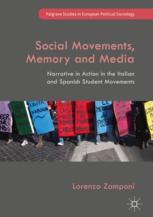

Most ebook files are in PDF format, so you can easily read them using various software such as Foxit Reader or directly on the Google Chrome browser.
Some ebook files are released by publishers in other formats such as .awz, .mobi, .epub, .fb2, etc. You may need to install specific software to read these formats on mobile/PC, such as Calibre.
Please read the tutorial at this link: https://ebookbell.com/faq
We offer FREE conversion to the popular formats you request; however, this may take some time. Therefore, right after payment, please email us, and we will try to provide the service as quickly as possible.
For some exceptional file formats or broken links (if any), please refrain from opening any disputes. Instead, email us first, and we will try to assist within a maximum of 6 hours.
EbookBell Team

4.7
96 reviewsCultural factors shape the symbolic environment in which contentious politics take place. Among these factors, collective memories are particularly relevant: they can help collective action by providing symbolic material from the past, but at the same time they can constrain people's ability to mobilise by imposing proscriptions and prescriptions.
This book analyses the relationship between social movements and collective memories: how do social movements participate in the building of public memory? And how does public memory, and in particular the media’s representation of a contentious past, influence strategic choices in contemporary movements? To answer these questions the book draws its focus on the evolution of the representation of specific events in the Italian and Spanish student movements of the 1960s and 1970s. Furthermore, through qualitative interviews to contemporary student activists in both countries, it investigates the role of past waves of contention in shaping the present through the publicly discussed image of the past.